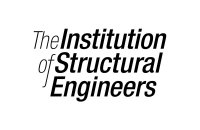Our Practical Highway Design course provides an introduction to the design of highways using the Standards for Highways Design Manual for Roads and Bridges (DMRB). Use of the design standards within the manual is mandatory for motorways and trunk roads and forms the basis of design for many other classes of roads.
This course provide delegates with an understanding of the interrelation between the capacity and geometry of major highways and appreciate how the highway structure may be fitted into the existing terrain. Although the focus is on major highways, the principles may be applied to local roads and developments.
Please also see Various Types of Pavement Design.
Available as an online training course and an online in-house training course.
Aims & Objectives:
At the conclusion of this course delegates will:
- Understand the role of the Design Manual for Roads and Bridges in highway design
- Be able to appreciate the fundamentals of geometry and capacity of both highway links and junctions
- Gain a practical appreciation of the inter-relation of the elements of the highway
Course Outline:
Session 1
Introduction to the DMRB with particular reference to Volume 5- Assessment and Preparation of Road Schemes, Volume 6-Road Geometry and reference to Volume 7-Pavement Design
Session 2
Highway capacity - Link Capacity and junction capacity
Session 3
Highway Geometry - Highway link design. The geometry of junctions
Session 4
The road in cross section - highway details, headroom and clearance
Session 5
Elements of drainage
Session 6
Workshop
Mode of Delivery:
Run as a series of PowerPoint presentations linked by interactive workshops, allowing participants to apply the information gained to practical examples.
Discussion of the reason for the methods used and their practical implementation is central to the training.
Intended For:
Graduate engineers or technicians with little or no experience of work on highway design or for engineers from other backgrounds wishing to gain a basic insight into highway work.
Pre-Course Requirements:
Participants need have no previous experience of highways, but a background in engineering is assumed. Delegates are required to bring a calculator, scale rule (1/2500) and a pencil.








